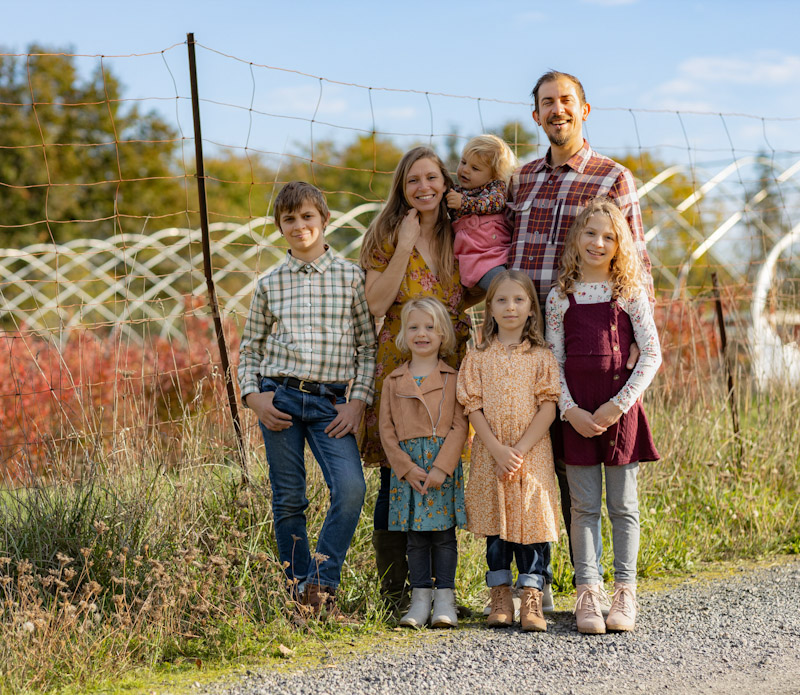Farmer’s Corner: Representing Farmers in Planning for Climate Change
Our guest article comes from Trish Haggerty of Dilish Farm in Vancouver, WA. Trish is a farmer, small business owner, and a food security and environmental justice advocate in Clark County. She represents the Farm & Food Justice Network on the newly formed Clark County Environmental Justice Coalition (EJC) in order to support the county with Climate Change Planning.

The Haggerty Family on their farm
Dear Friends,
Farmers are on the frontline of climate change and environmental degradation, so when the opportunity arose to join Clark County’s Department of Community Planning’s initiative for climate justice, I found the position intriguing and began to delve a little deeper into what systems they wanted to impact.
First, a bit of background: With passage of ES2HB 1181 into law in May 2023, Clark County is now required to add a Climate Change Element to its Comprehensive Plan. Kicking off in January of 2024, Clark County launched the Environmental Justice Coalition (EJC), a coalition created to “meet the public engagement and environmental justice requirements of new state Climate Change Planning legislation. The climate project team is partnering with community based organizations to facilitate the meaningful involvement of populations most impacted by climate impacts and hazards.”
I knew that we had to have a farmer as a coalition member as soon as I read the goals of the coalition, and I was surprised when I learned that they weren’t originally taking farmers into account. Farmers are incredibly impacted by extreme weather – the floods, the extreme heat, the extreme drought – which make it very hard for us to produce a bountiful harvest. We have to play along with the way mother nature treats us. If we are not successful then all people in our area lose the opportunity to get food from a local source, and if our farms are not able to sustain and grow food in a local and impactful way, those communities struggling with food access will have less healthy food available to them.
Farmers are also incredibly impacted by development. I fear that there is no pressure on developers for their water use and land use. There should be a difference in land use for developers versus land use for small farms, whether we are farming in rural or agricultural zones.
I also want to give voice to the fact that farms can help build climate resilience in our area and positively impact the environment. On our farm, we use practices that affect our climate by sequestering carbon, such as planting trees, using no till and regenerative practices, and growing native plants.
I’m not really a person who wanted to be involved in politics, and certainly isn’t why I started farming or decided I would want to grow food, but I keep finding myself drawn to community organizing and advocacy. I’m serving on the EJC to represent more than just my farm – I’m here to represent the farmers and community members who are underrepresented. Many members of our community need the support of farms and local food. I’ve gotten to know our community by selling my produce at farmers markets. We have been growing closer as a farming community, meeting up for little social hour events and potlucks, and making deeper connections at advocacy events where we’ve been able to discuss climate bills, farm bills, and other legislation that affects us.
I plan to help in the facilitation of the climate justice initiative by making sure that farmers have a seat at the table, because if we don’t act then they won’t assume we care. I care deeply for farmers in my community and I am honored to have a seat at the table.
Please reach out if you are a farmer and have concerns you want to discuss!
Trish Haggerty
Email: dilishfarm@gmail.com
